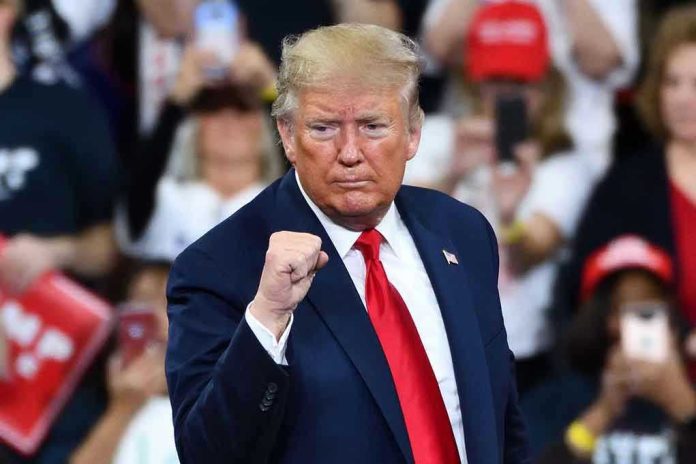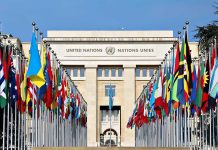
President Trump’s threat of military action in Nigeria over alleged Christian persecution has ignited a wave of debate and controversy.
Story Overview
- Trump threatens military action against Nigeria over alleged Christian persecution.
- Nigerian President Tinubu denies accusations, emphasizes security efforts for all citizens.
- Experts contest Trump’s claims, highlighting indiscriminate violence by terrorist groups.
- US-Nigeria diplomatic tensions rise amidst threats to cease aid and prepare military action.
Trump’s Bold Military Threat
On November 2, 2025, President Donald Trump made headlines by threatening military intervention in Nigeria, citing the need to protect Christians from alleged persecution by Islamic terrorists. Trump’s declaration, made on Truth Social, included a promise to cease all US aid to Nigeria and to deploy military forces to “wipe out” the terrorists if necessary. This threat marks a significant escalation in US-Nigeria relations and reflects Trump’s commitment to religious freedom as a cornerstone of his foreign policy.
Trump’s approach is not without precedent. His administration has consistently emphasized religious freedom as a pivotal element of American foreign policy. However, this specific threat to Nigeria represents an unprecedented move in recent history. It is part of a broader strategy to leverage military might and economic aid as tools of diplomatic pressure, a tactic that has drawn both support and criticism from various quarters.
Nigerian Government’s Response
Nigerian President Bola Ahmed Tinubu responded to Trump’s threats by defending his government’s efforts to address security challenges. Tinubu emphasized that his administration engages with both Christian and Muslim leaders to maintain peace and security. He rejected Trump’s characterization of Nigeria as religiously intolerant, pointing to initiatives aimed at unifying citizens across different faiths. Tinubu’s statement underscores Nigeria’s sovereignty and its commitment to addressing the security threats posed by terrorist groups like Boko Haram and ISWAP.
The Nigerian government’s stance highlights the complex nature of the security situation, which involves indiscriminate attacks on civilians, irrespective of their religious affiliations. Security analysts argue that the violence in Nigeria is not a targeted genocide against Christians, but rather a broader issue of terrorism affecting all citizens.
Expert Analysis and Rebuttals
Bulama Bukarti, a Nigerian humanitarian lawyer and conflict analyst, has strongly contested Trump’s claims of a Christian genocide. Bukarti’s research indicates that terrorist groups in Nigeria attack both Muslims and Christians without discrimination. His analysis suggests that framing the violence as religious persecution oversimplifies the situation and risks exacerbating tensions. Bukarti’s perspective is supported by factual data and aligns with broader security assessments that see the violence as part of a complex pattern of terrorism.
Media Denies Christian Genocide in Response to Trump’s Threat of Military Action in Nigeria https://t.co/rmyk1eBAs0
— gkcfan (@mjochs1) November 4, 2025
As the situation unfolds, the international community is closely monitoring the developments. The implications of Trump’s threats could have far-reaching consequences for US-Nigeria relations, as well as for regional stability in West Africa. The debate over religious persecution versus terrorism will likely continue, with both sides presenting compelling arguments and evidence.
Sources:

















